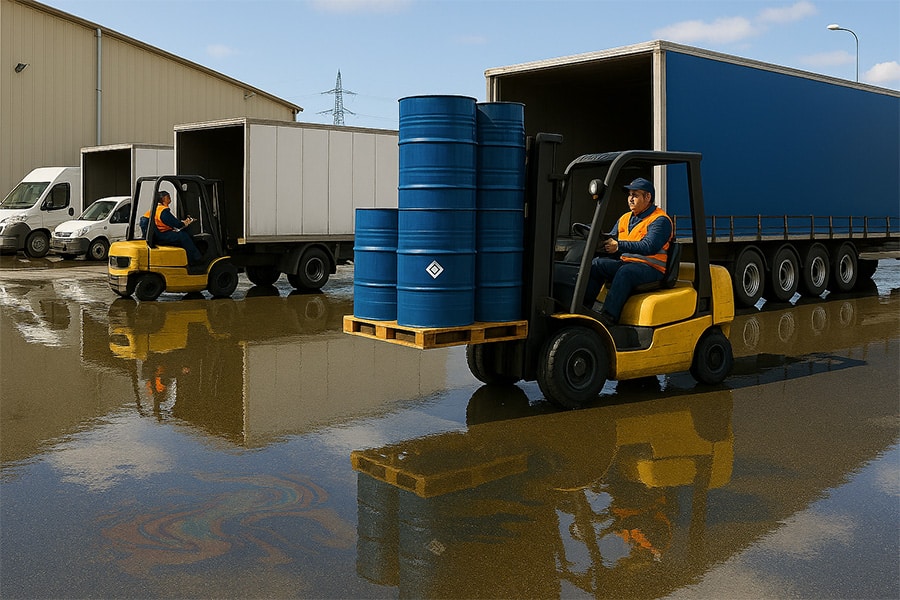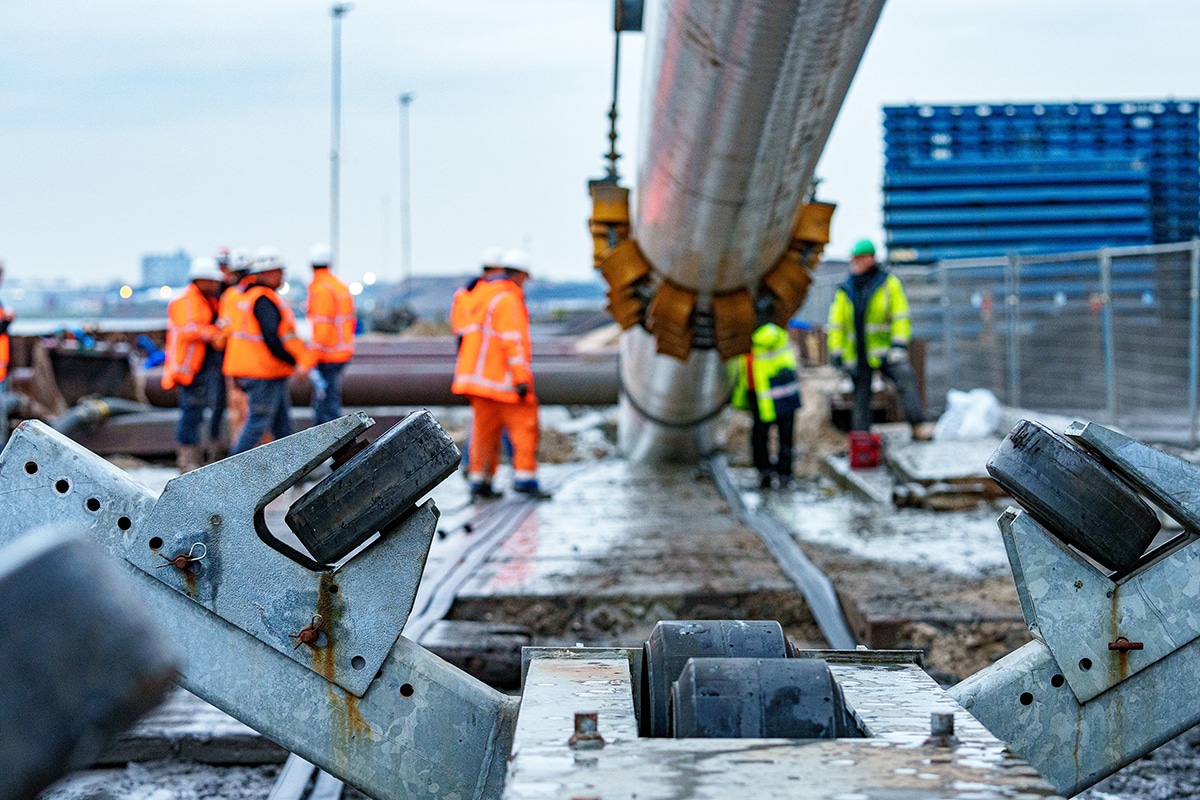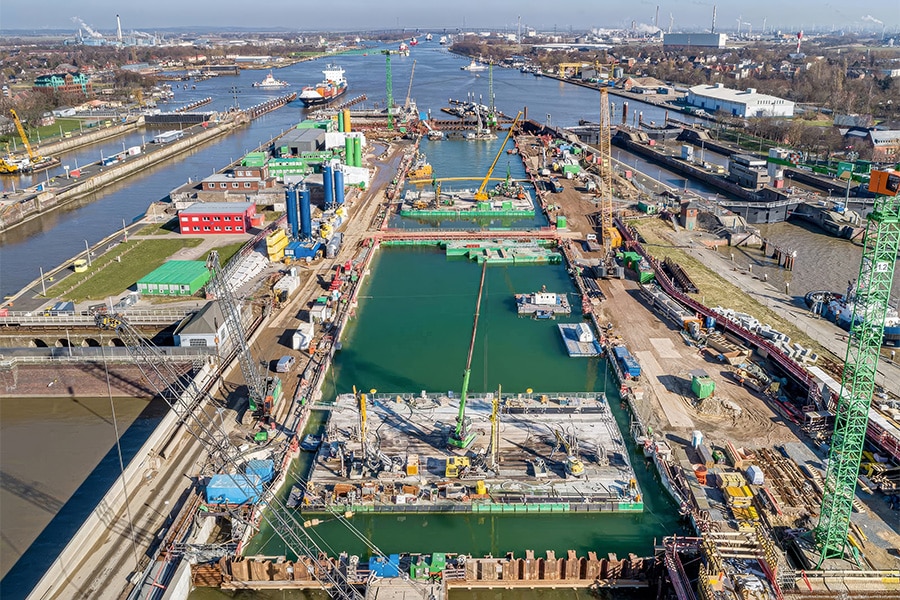
Continuously responding to current events
As early as 2017, the Alliance made preparations and designs for reinforcing the Markermeer dikes. Parallel to this, environmental consultancy ATKB started to fathom the (water) soil quality. This methodology of simultaneous design and research, thus continuously responding to current events, is typical of this project and, in combination with its size and diversity, quite unique by Dutch standards.
"All our disciplines come together on this project," begins Martijn van Lochem, Department Head of Soil and Water at ATKB. "The size combined with the dynamics and diversity of activities, makes the project really quite special for us as well. We started years ago with investigating the water bottom quality and the soil around and in the existing dike bodies in different phases. Gradually, the focus of our research work shifted to the land side, such as the pavements on the dike, the roadsides, parts of the dike body itself and everything connected to it."
Close cooperation
"The Alliance may be our client, but we are really working together as partners rather than in a traditional client-contractor role," Van Lochem continued. "Apart from the size of the project and the time pressure, one of the challenges was also that on several sections it was not yet clear what the new situation would look like. While we were already busy with soil research. A conscious choice, because our data helped influence the design of the sections. On other sections, the preliminary design in turn formed input for our studies. And so a wonderful interaction developed in which data were made available back and forth in a good way."

Triangle mussels
ATKB, incidentally, is still active on the project. "For example, we are called in for local soil surveys in response to previously identified contamination and remnants of paving," Van Lochem explains. "On the basis of a window remediation plan, we provide on-site environmental supervision during remediation to ensure that contaminated soil flows and building materials are handled properly. Parallel to the scope for the Alliance, we also conduct studies for the water board and the client's umbrella consulting firm. For example, our aquatic ecology department has investigated the presence of zebra mussels in certain parts of the Markermeer where new sections of dike route are being constructed."
Van Lochem concludes, "We are fairly unique in the Netherlands as an environmental consultancy with a combination of expertise united under one roof: specialists in soil, water, terrestrial and aquatic ecology and geophysical research. Precisely all these disciplines come together here on the Markermeerdijken project. In doing so, we are compact enough to offer flexibility and speed, so that we can continuously respond to current events, but large enough to guarantee sustainable services."




